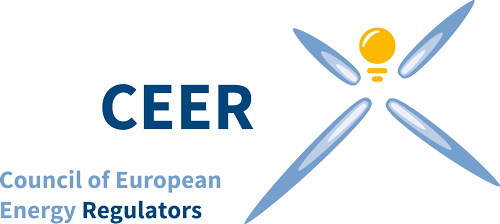January 2010
| | |
| European Energy Regulators’ News | |
| Issue: January 2010 | |
| If this e-mail is not displayed correctly, please click here! | |
|
| Editorial With the 17th European Gas Regulatory (Madrid) Forum taking place mid January, gas features strongly this month. The feature article of this edition is on gas capacity allocation gas and congestion management procedures. At the Madrid Forum, ERGEG called on the Commission to adopt legally binding rules on congestion management. Other ERGEG presentations at Madrid included the intermediate results of its study on the 10 year gas network development plan; and ERGEG’s view and next steps on balancing. |
| Gas Capacity Allocation and Congestion Management - first signs of implementing the 3rd Package | |
| The 3rd Package of energy legislation, adopted in July 2009, provides for EU-wide Network Codes. These will be drafted by the European TSO bodies on the basis of Framework Guidelines set out by the new Agency for the Cooperation of Energy Regulators (ACER).These Network Codes are critical for an integrated EU energy market. But, ACER cannot formally act until 3 March 2011. European Commission asked ERGEG to act as if it were the Agency The target model for Gas Capacity Allocation and how to reach it ERGEG’s long term vision for the EU gas market is for trades to be concentrated at virtual hubs, thus benefitting market liquidity. The route to this target model is the cohabitation of interconnected entry-exit systems with a virtual hub. The general principles are that: This will allow the move towards uniform capacity allocation procedures at interconnection points throughout Europe in 2 steps: (1) Harmonisation of procedures at every IP: towards bundled products between market areas; and (2) Harmonisation at the EU level: same products & capacity allocation mechanism everywhere Congestion Management Procedures (CMP) Seeing the urgent need to improve congestion management of Europe’s gas pipelines, ERGEG has developed (in consultation with stakeholders) principles for Congestion Management Procedures (CMP). These focus on the Use It or Loose It (UIOLI) principle and the bundling of capacities to be implemented at all Interconnection Points. In setting out its proposal at the Madrid Forum this month, ERGEG recommended to the European Commission to adopt binding guidelines on congestion management via comitology. Comitology process requires quantitative impact assessment of policy options. To this end, ERGEG has engaged a consultant to assess the (a) social welfare impact of implementing more harmonised and prescribed congestion management procedure based on ERGEG principles throughout the EU. |
| CEER/ERGEG Publications |
| Publications: • National Reports • ERGEG 2009 Status Review of Liberalisation and Implementation of the Energy Regulatory Framework, Ref. C09-URB-24-03, 10 December 2009 FactSheet • Smart Grids and smart energy regulation help implement climate change objectives, January 2010 (FS-10-01) Events (see Events section of website for the new calendar of workshops) : • ERGEG presentations at 17th Madrid Forum, Madrid, 14- 15 January • 3rd ERGEG workshop on 10-year gas network development plan, Brussels, 26 January 2010 • Draft Pilot Framework Guideline on on Capacity Allocation (CAM) and Congestion Management (CMP), Brussels, 2 February 2010 • Integration of Wind Generation, Brussels, 11 February 2010 • Electricity 10-year network development plan, Brussels, 11 February 2010 • Customer Complaint Handling, Brussels, 25 February 2010 • Smart Grids, Brussels, 17 March 2010 |
| Calendar of current and future public consultations |
|
The standard period for ERGEG public consultation is 8 weeks. See the public consultations section of the website.
| Events |
| See all dates of Regional Initiatives meetings (RCC, IG, SG) on the ERGEG online Calendar. |
| Regional Initiatives Update |
|
|
| Region in the Spotlight - SSE and the Austrian Gas Hub |
| On 11 December 2009, Austria’s spot gas exchange “CEGH – Gas Exchange by the Vienna Stock Exchange” commenced as a trading platform for spot market gas products. This marks a further step towards positioning the Central European Gas Hub (CEGH) as an important international hub and trading gateway into the Central-East European area, whilst strengthening competition and the further liberalisation of the market. The Central European Gas Hub AG together with the Vienna Stock Exchange and the European Commodity Clearing offer 2 different day-ahead base-load products. |
| International Activities |
|
|
| About the European Energy Regulators' News |
| Reported content is given for information purposes only and does not legally bind any of the involved parties. Where third-party sources are mentioned, CEER/ERGEG is not responsible for the accuracy of the information. Your feedback on European Energy Regulators’ News is welcome, so as to improve future issues. Contact: una.shortall@ceer.eu |
